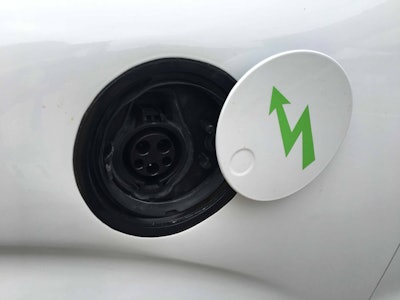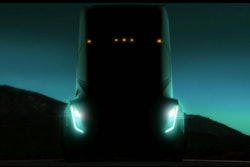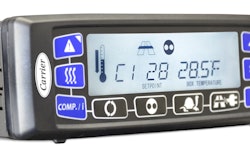
A couple of years ago, you were probably being inundated by the sheer volume of headlines proclaiming natural gas as trucking’s great disruptor.
Then diesel prices – the ultimate disruptor – dropped and have held under $3 per gallon for more than a year.
One of my Facebook friends (not the same guy from my previous blog, I swear) recently posted a query, asking his friends to share words that bother them.
First of all, I’m amazed at the number of people who don’t like the word “moist.”
Secondly, as I sat there and read the comments where people listed their least favorite words – words like deplane, gullet and meat – I thought long and hard about what words really rub me the wrong way.
I could only come up with one: disrupt, which is overused and often misapplied in this industry.
A decade ago this month, Steve Jobs and his iPhone changed how the world communicates and accelerated the exodus of the land line from many U.S. homes.
Now, that’s disruptive.
The pace of innovation in trucking is always going to ebb and flow with the price of every fleet’s single largest expense, but with diesel prices at their lowest point in more than a decade we’re seeing the resurgence of one of fossil fuel’s oldest rivals: Electricity.
Navigant Research says electric vehicles already make up more than 3 percent of all new vehicle sales, and that could to grow to nearly 7 percent by 2020.
In September, Elon Musk is expected to debut his Electric Semi tractor – about 127 years after William Morrison debuted the first electric car in the U.S.
While we’ve been down this electrified path before, the biggest difference between then and now is that technological advancements have made pieces of it more viable.
Morrison’s six-passenger electrified wagon featured a top-speed of 14 miles an hour. Tesla’s Model S will hit 60 MPH from a dead stop in 2.5 seconds.
The kind of electric technology needed for a heavy-duty tractor is already here. What’s not yet ready for prime time is the power supply – banks of gigantic, heavy, payload-zapping batteries.
Tesla’s Model S weighs just south of 5,000 pounds. A Toyota Camry weighs in about 1,500 pounds less. For a passenger car that weighs about as much as a King Cab F-150 pickup, a 30 percent uptick in curb weight is no big deal. For a combination unit that shouldn’t weigh more than 80,000 pounds, it’s fairly significant.
If you wipe out 30 percent of your payload just to offset battery weight, that’s disruptive: Disruptive in your ability to cover your payroll and pay your bills.
Thanks to a lower center of gravity coming from the low-slung battery bank, a Tesla handles and corners better than probably any car you’ll ever drive. But that’s hardly important to drivers dragging a 53-foot trailer around the highway.
Electric tractors have already carved out a niche in the refuse and drayage segments, but the idea of a long-haul electric tractor has always been sold on the idea of cutting out fuel costs to deliver a faster payback. Leaving almost a third of your load on the dock isn’t an efficient way to bank those bucks.
And I’m willing to bet that all that added on-demand torque is going to stress a tire budget.
Trucking has spent much of the last 10 years getting lighter, implementing everything from wide-base tires to aluminum wheels and replacing 15-liter engines with 13- and even 11- liters. An electric truck, almost by its very nature, takes us in the opposite direction.
The work being done in the electric truck space is important and will almost certainly lead to advancements that can be used across a host of applications, even if you never drive an electric tractor.
However, in the century-long fight for mobility, I think we’re looking at an innovation like the Motorola StarTAC – the world’s first flip-style mobile phone – not a major, game-changing iPhone-like disruption.











